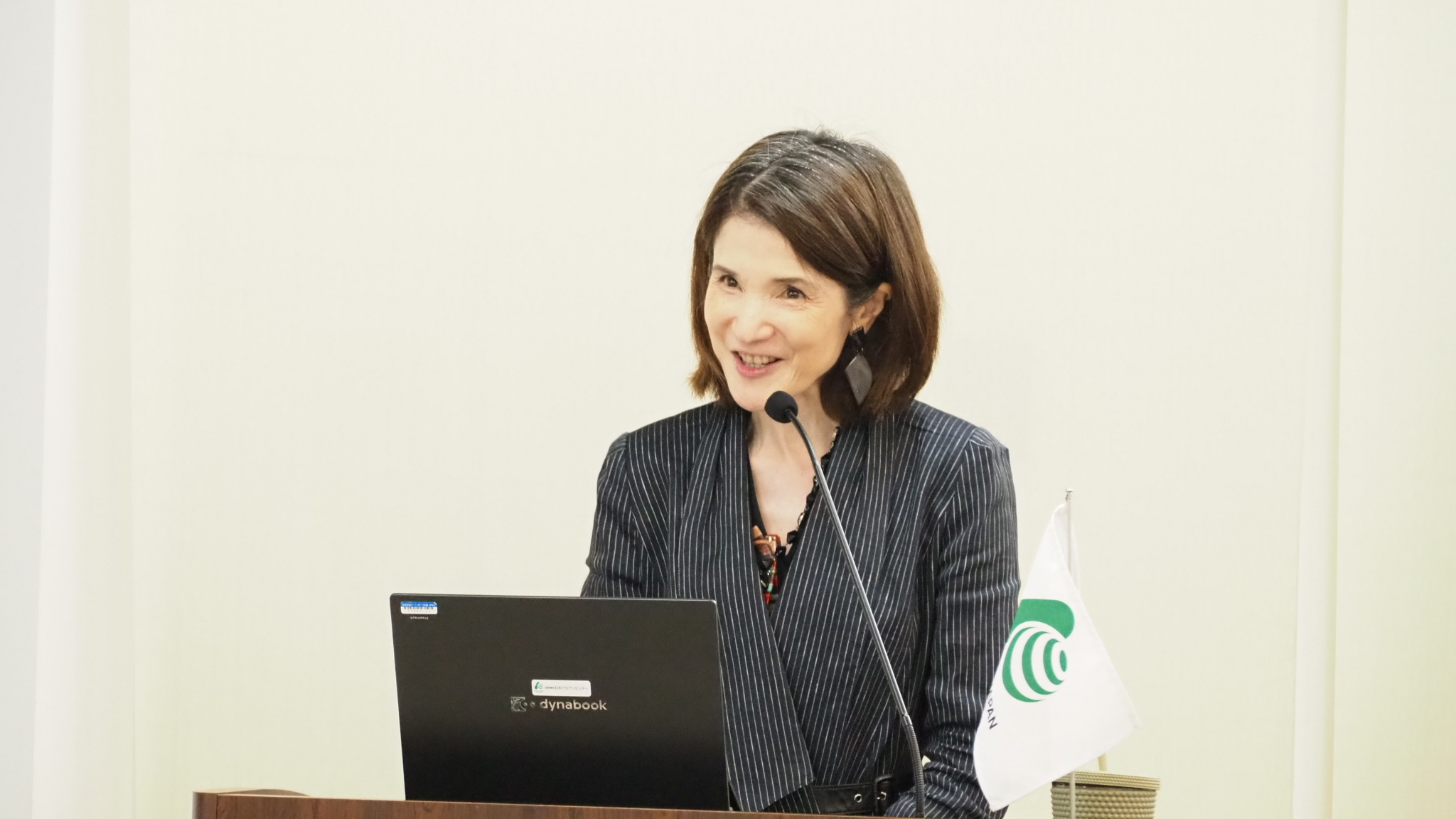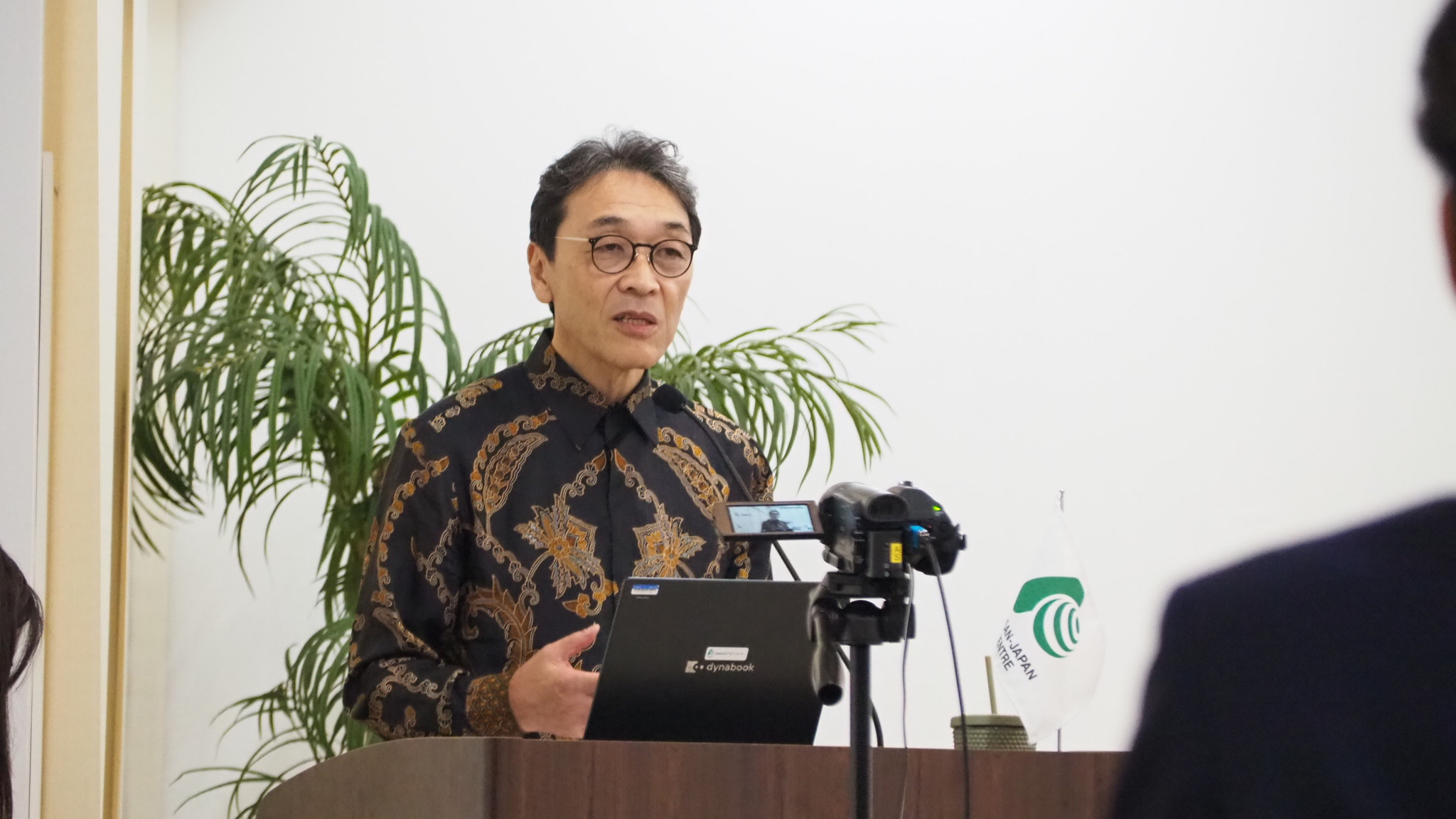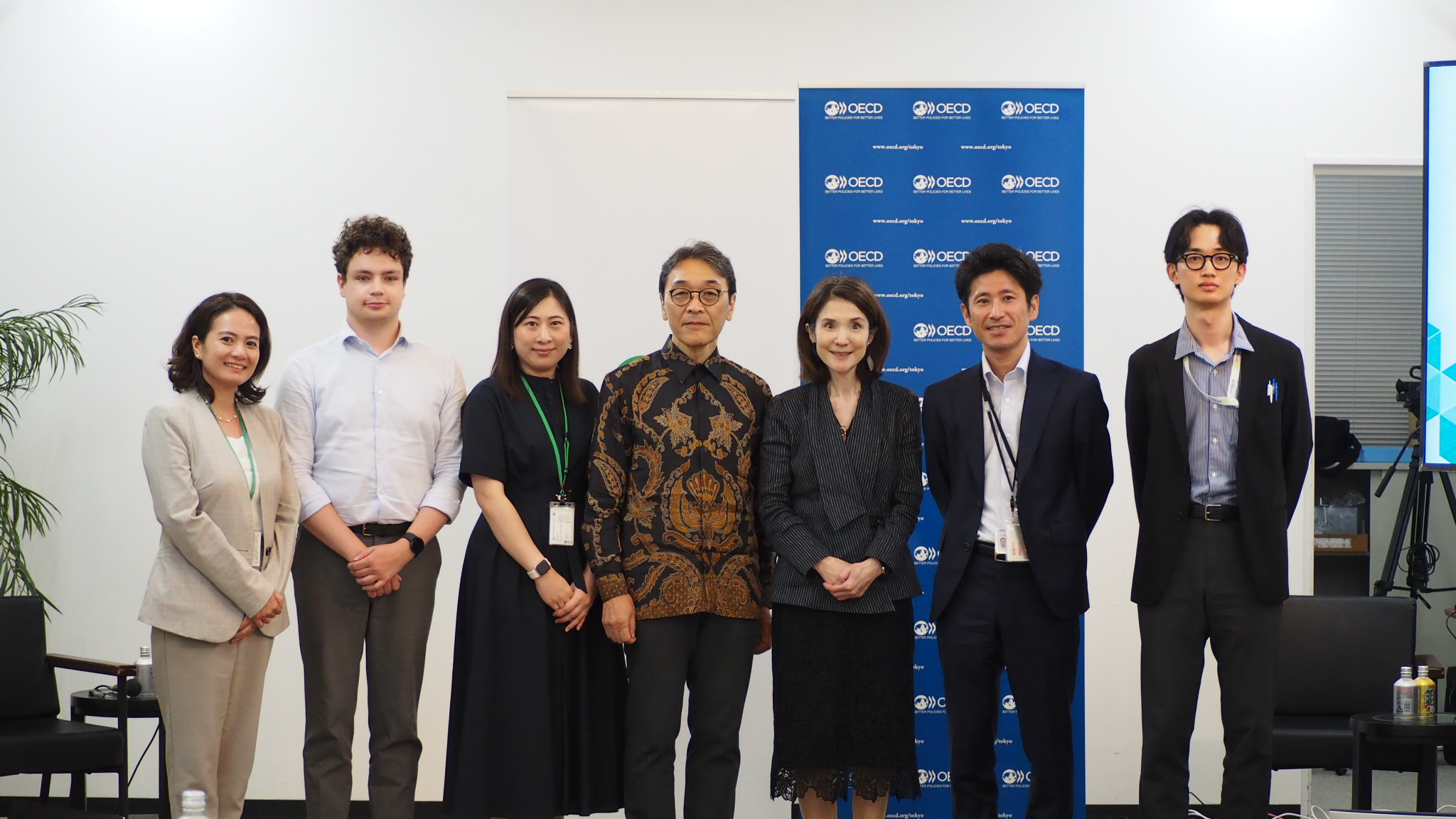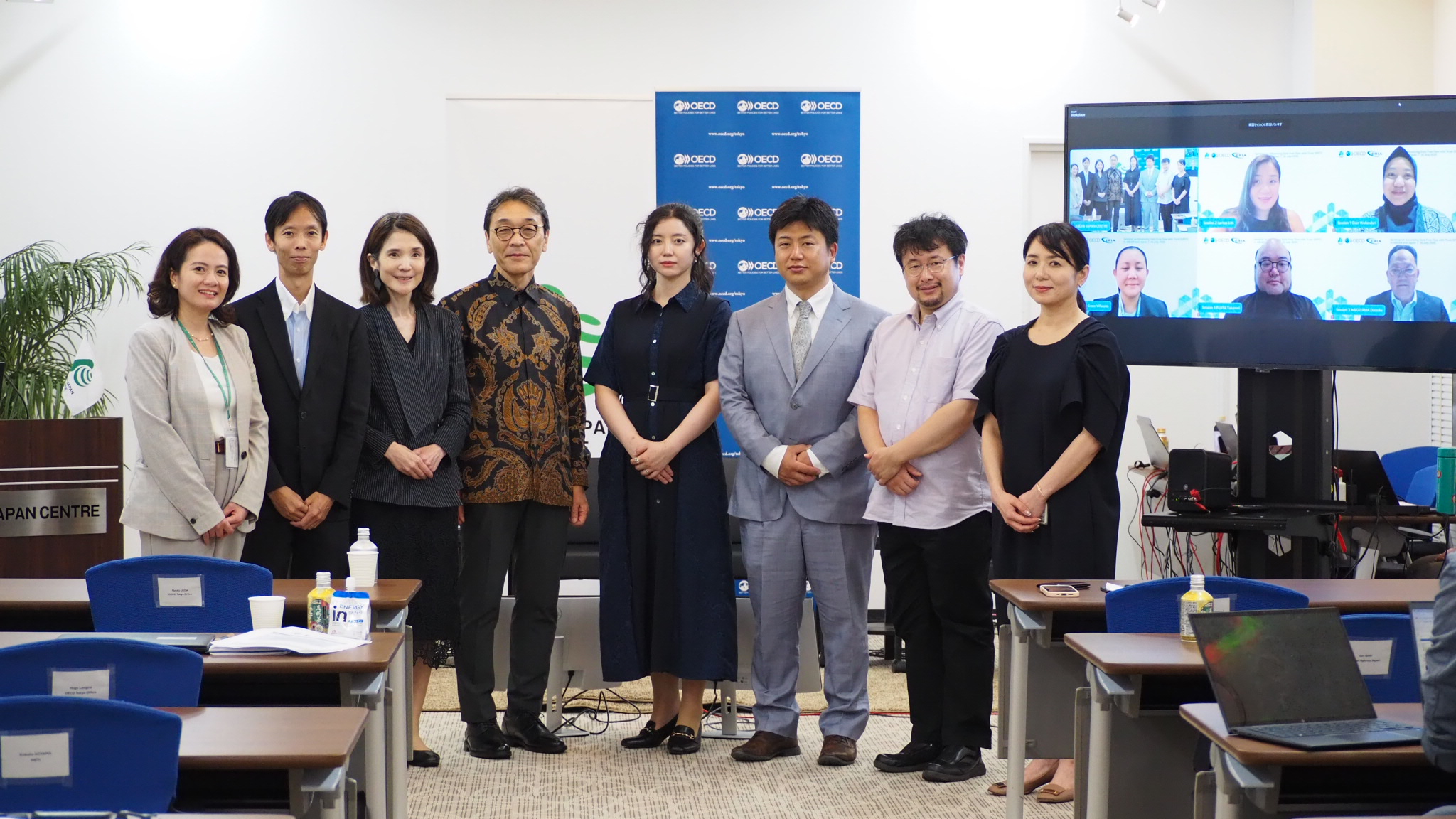To watch the recorded video, click here.
To download the presentation slide, click here.
On 31 July 2025, the ASEAN-Japan Centre, in partnership with the OECD Tokyo Office and ERIA, held the hybrid seminar “Advancing Data Free Flow with Trust (DFFT) in ASEAN and Japan: Policy, Practice and Partnerships” at ASEAN Hall, Tokyo, and via Zoom. The seminar explored how trusted, interoperable cross-border data flows can underpin innovation, trade and sustainable growth across the region.
Opening Remarks

Ms. Naoko Ueda, Head of the OECD Tokyo Office, welcomed participants and underlined DFFT’s origins in Japan’s 2019 G20 Presidency and its evolution into a central principle of global digital governance. She stressed that secure, seamless data flows—grounded in privacy, cybersecurity and respect for human rights—are essential to unlock the full potential of the data-driven economy.
Session 1: From Policy to Practice: Operationalizing DFFT in Asia
Moderator: Dr. Yuka Kubota, Senior Executive Officer, ASEAN-Japan Centre
Speakers:
- Mr. Takuya Funahashi, Assistant Director to the Counselor at the Cabinet Secretariat, Secretariat for Digital Administrative and Fiscal Reforms, Japan
- Mr. Jun Morikawa, Director, Digital Trade Policy Office, Ministry of Economy, Trade and Industry (METI)
- Ms. Maiko Meguro, Lead Coordinator on DFFT and Senior Policy Analyst, Directorate for Science, Technology, and Innovation Data Flows, Governance and Privacy Division, OECD
- Ms. Dian Wulandari, Deputy Director of ASEAN ICT Center, ASEAN Secretariat

The first session explored how DFFT is being translated into policy frameworks and institutional partnerships. Mr. Funabashi outlined the country’s Strategic Plan for Data Utilization, which by 2026 will pilot public-private data-sharing models and propose new legislation to complement the Act on the Protection of Personal Information. Following him, Mr. Morikawa explained Japan’s three-track digital trade strategy: embedding DFFT in Comprehensive and Progressive Agreement for Trans-Pacific Partnership (CPTPP), Regional Comprehensive Economic Partnership (RCEP) and bilateral agreements; chairing the WTO’s e-commerce Joint Statement Initiative (including the moratorium on customs duties for electronic transmissions); and leveraging OECD research to dismantle data-localization barriers.
Ms. Meguro presented the new Institutional Arrangement for Partnership (IAP), a public-private platform running project-based initiatives—from digital payments to privacy-enhancing technologies—and feeding their outcomes into formal OECD decision-making. Ms. Wulandari spotlighted ASEAN’s three-pillar Data Governance Framework, Model Contractual Clauses for SMEs and lessons from Indonesia’s 2022 G20 Presidency in embedding lawfulness, fairness and transparency. Panel discussions underscored that regulatory alignment across ministries, constant stakeholder dialogue, and tangible pilot projects are essential to build trust, bridge legal gaps and lay the groundwork for seamless, cross-border data flows.
Session 2: Identifying Barriers in Building Trust in Technology and Governance
Moderator: Ms. Naoko Ueda, Head, OECD Tokyo Office
Speakers:
- Mr. Jun Ishii, Director, International Data Strategy and International Affairs, Digital Agency, Japan
- Ms. Ivy Grace Villasoto, Attorney V, Division Chief of the Policy Development Division, National Privacy Commission, Philippines
- Ms. Larissa Lim, Executive Manager, International Relations, Policy and Strategy, Infocomm Media Development Authority, Singapore

Session 2 shifted to real-world hurdles and Japan–ASEAN cooperation. Mr. Ishii introduced the upcoming ASEAN Data Governance Hub, designed to consolidate legal interpretations and host AI-enabled Q&A tools, alongside privacy-enhancing technology pilots. Ms. Villasoto emphasized that domestic trust rests on public awareness campaigns, capacity-building for Data Protection Officers, and legislative reforms to strengthen enforcement and address emerging technologies. Ms. Lim showcased the national Data Protection Trustmark—now a statutory standard—and innovation sandboxes for privacy enhancing technologies (PETs) and AI assurance. Across three rounds of Q&A, panelists agreed that regulatory transparency, common technical standards and regional capacity-building workshops will be critical to close the trust gap.
Session 3: Catalyzing Innovation: DFFT Sectoral Applications and Case Studies
Moderator: Dr. Katrina Navallo, Programme Manager, Research Policy and Advocacy, ASEAN-Japan Centre
Speakers:
- Mr. Yuji IKAI, Director, International Office and Digital Strategy Office, Business Affairs Bureau, METI
- Mr. Daisuke Nakayama, Chief Manager for Digital Innovation and Sustainable Economy, ERIA
- Dr. Takanori Fujita, Senior Fellow, The Tokyo Foundation

Session 3 illustrated how DFFT translates into tangible pilots. Mr. Ikai introduced the Ouranos Ecosystem, a secure data-sharing platform piloted in the automotive battery sector to meet EU carbon reporting requirements and enable real-time traceability. Mr. Nakayama of ERIA described a proof-of-concept for unit-level supply chain traceability, which captures location and inventory data door-to-door, boosting resilience and efficiency. Dr. Fujita concluded with Japan’s Medical Digital Transformation initiative: integrating health insurance cards with the national ID, modernizing fee processes and deploying “informed consent 2.0” to support both care improvement and global research collaborations. Panel discussions underscored the value of case-based pilots, shared trust frameworks and a joint healthcare “playbook” for pandemic response and personalized medicine.
Closing Remarks

Dr Kunihiko Hirabayashi, Secretary General of the ASEAN-Japan Centre, thanked all speakers and participants. He underscored that trusted data flows are “the true currency of the digital economy” and called on governments, industry and multilateral bodies to sustain momentum through regulatory reform, public-private collaboration and inclusive pilot projects.



